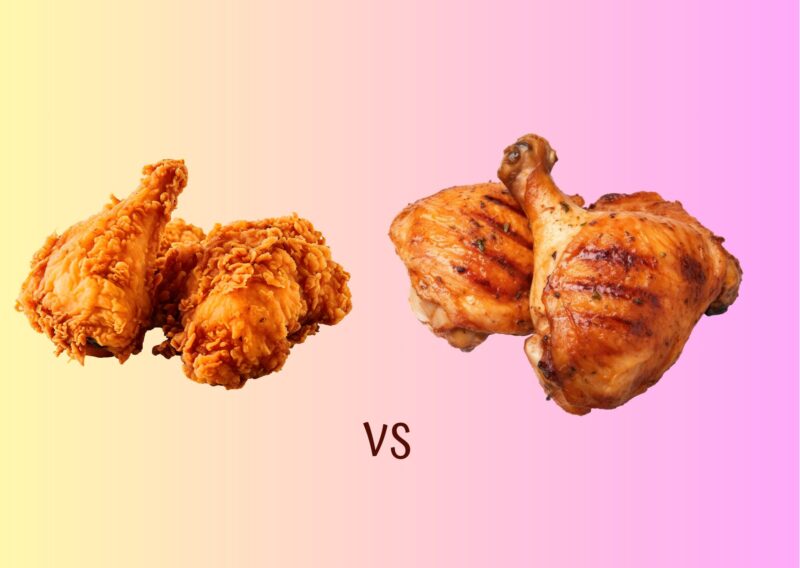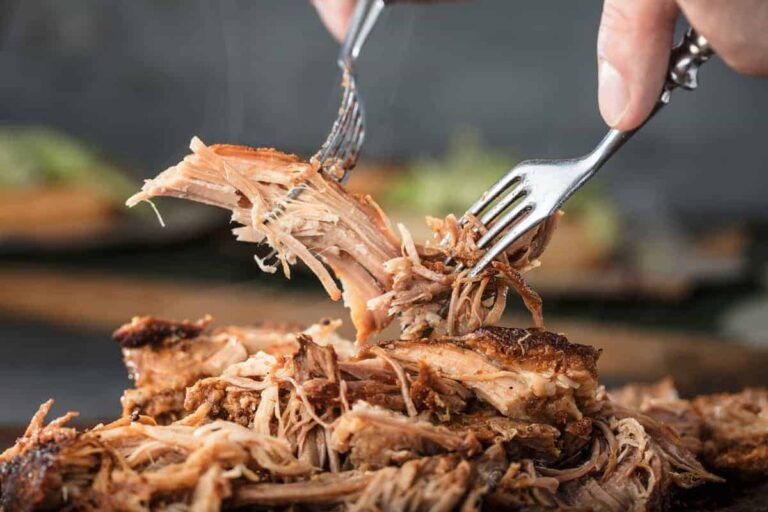When you think of comfort food, fried chicken probably tops the list. But with more folks watching what they eat, grilled chicken is stealing the spotlight. The choice between these two methods isn’t just about taste—it’s a health debate that influences our eating habits. So, which one is actually better for you? Let’s break it down and find out.
Calories and fat content
One of the primary differences between fried and grilled chicken lies in their calorie and fat content. Fried meat is typically higher in both due to the oil used in frying.
A single piece of fried chicken can contain as much as 300-400 calories and 20 grams of fat, depending on the size and batter used. In contrast, grilled meat is much leaner, with a similar portion containing around 150-200 calories and 6 grams of fat.
Protein and nutrient density
Both fried and grilled chicken are excellent sources of protein, essential for muscle repair and growth. However, the method of cooking can affect nutrient density. Grilled meat retains more of its vitamins and minerals, such as B vitamins, potassium, and phosphorus, since it’s cooked without the heavy batter that can strip away these nutrients.
Fried chicken, on the other hand, may lose some of these nutrients during the frying process.
Health risks and benefits

When deciding between fried and grilled chicken, it’s essential to weigh the health risks and benefits of each cooking method.
Heart health
The high fat content in fried meat, particularly trans fats, can contribute to heart disease. These unhealthy fats can increase bad cholesterol (LDL) levels and decrease good cholesterol (HDL) levels, leading to clogged arteries and an increased risk of heart attacks.
Digestive health
Fried foods are harder to digest due to their high fat content, which can lead to digestive issues like bloating and discomfort. Grilled chicken, being leaner and less greasy, is generally easier on the digestive system.
Weight management
For those looking to manage their weight, grilled chicken is the better option. The lower calorie and fat content make it a more suitable choice for a balanced diet. Fried chicken, with its higher calorie density, can contribute to weight gain if consumed frequently.
What about flavor and satisfaction?

Let’s not ignore the role of taste and satisfaction. Fried chicken has a crunchy, flavorful exterior that many people love. The batter and frying process adds a unique taste that grilled meat lacks. However, grilled chicken can be equally delicious when marinated with herbs and spices, offering a smoky flavor that fried meat cannot match.
Comparing cooking methods
When it comes to preparing meals, the method you choose can significantly impact the flavor, texture, and nutritional value of your food. Each method offers unique advantages, making some better suited for certain types of dishes.
Frying
- Deep frying: This method submerges chicken in hot oil, cooking it quickly and evenly. While it creates a crispy texture, it also significantly increases the calorie and fat content.
- Air frying: A modern twist, air frying uses hot air circulation to cook the meat with minimal oil. This method reduces the fat content but doesn’t quite replicate the deep-fried crunch.
Grilling
- Outdoor grilling: Traditional grilling over an open flame adds a smoky flavor and can be done with minimal added fat.
- Indoor grilling: Using an electric grill, this method is convenient and still provides the health benefits of reduced fat and calories.
Tips for healthier fried and grilled chicken
Here are some practical tips to help you prepare healthier fried and grilled chicken, ensuring you get the flavor you love while keeping it nutritious.
For fried meat
- Use healthier oils: Opt for oils with a higher smoke point and healthy fats, like avocado or coconut oil.
- Air frying: Consider using an air fryer to reduce the amount of oil needed.
- Light batter: Use a light coating of whole grain flour or breadcrumbs to add fiber and reduce calories.
For grilled meat
- Lean cuts: Choose skinless, boneless cuts to reduce fat content.
- Marinades: Use healthy marinades with olive oil, lemon juice, and herbs to enhance flavor without adding unhealthy fats.
- Avoid overcooking: Overcooked chicken can become dry and less palatable, so keep an eye on cooking times.
Which one wins?
In the end, grilled chicken usually wins as the healthier pick since it’s lower in calories and fat, keeps more of its nutrients, and is easier to digest. But hey, fried chicken isn’t off the table! You can still enjoy it now and then, especially if you go for healthier methods like air frying. It all boils down to your health goals and what you prefer to eat.
For more info about chicken read this article: How Much Chicken Is 3 Ounces and What Can You Prepare With It?










